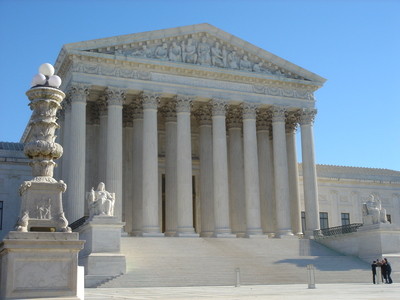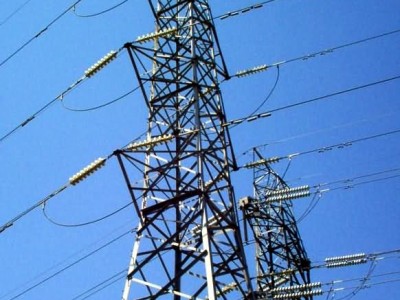A Bailout By Any Other Name…
Weak environmental laws are another form of bailouts for private industry
Bailouts – the payment of public funds or resources to rescue or support a private enterprise – are politically very unpopular. The primary challenger who defeated Republican House Majority Leader Eric Cantor in Virginia excoriated Cantor for supporting big banks in the wake of the financial crisis. The bailout of banks after the crisis that Cantor and many other Congressmen supported remains unpopular. Governor Romney famously opposed the Obama Administration’s ba...
CONTINUE READINGCompiled Resources on the “Clean Power Plan” Proposed §111(d) Rule
All LegalPlanet resources on regulation of GHGs under 111(d), plus critical EPA resources and other valuable analyses
Today, EPA officially published the Clean Power Plan, the agency’s proposed rule to regulate power plant greenhouse gas emissions under Clean Air Act § 111(d), initiating a public comment period that will close on December 1, 2014. I have taken this as an opportunity to compile all of the various LegalPlanet resources on regulation of greenhouse gases under 111(d) below, along with some critical EPA resources and other valuable analyses. Happy commenting! &nbs...
CONTINUE READINGBP Spill + 4
Four years ago, the BP Deepwater Horizon was still gushing oil. The well was finally capped in mid- July. There's been a lot of legal action since then, but it's hard to keep track of all the piecemeal developments. Here's quick rundown. The Presidential Commission investigating the spill identified the “root causes” as management failures by industry and a dysfunctional regulatory system. Other investigators have agreed. After the spill, the Obama Ad...
CONTINUE READINGMick Jagger on Chemical Reform
Vermont's new chemical program looks to be a mixed bag
Vermont just joined the posse of states taking chemical regulation reform into their own hands in the face of inaction in Congress. Last week the Green Mountain State enacted a new law covering chemicals in children’s products. (A children’s product is defined as “any consumer product, marketed for use by, marketed to, sold, offered for sale, or distributed to children in the State of Vermont.”) The law, which is modeled on a similar program in Washington S...
CONTINUE READINGUARG Decision — Due Any Day Now — Should Not Undermine the Legality of CAA Section 111d Rules
Case involves statutory interpretation questions not relevant to power plant rules
The U.S. Supreme Court should issue a decision in Utility Air Regulatory Group (UARG) v. EPA very soon, perhaps as early as Monday (the Court typically issues its opinions on Mondays and Thursdays at 10:00 a.m. EST). The case involves an important set of regulations designed to regulate greenhouse gases from large new "sources" (industrial facilities, chemical plants, power plants, etc.) through a permitting process that determines, for each individual plant, the ste...
CONTINUE READINGDoes OIRA Live Up To Its Own Standards?
OIRA should conduct a cost-benefit analysis of its own activities and explore alternatives to its current oversight methods.
A White House office called OIRA polices regulations by other agencies in the executive branch. OIRA essentially performs the role of a traditional regulator – it issues regulations that bind other agencies, and agencies need OIRA approval before they can issue their own regulations. Essentially, then OIRA regulates agencies like EPA the same way that those agencies regulate industry. Issuing regulations and permits is a very traditional form of regulation, often...
CONTINUE READINGPART IV – EPA’s Proposed 111(d) Rule: Some Insights & Open Legal Questions
The fourth and final post in a series offering some initial insights and observations, and posing several open legal questions related to EPA’s proposed 111(d) rule.
This is the fourth and final post in a series offering some initial insights and observations, and posing several open legal questions related to EPA’s proposed 111(d) rule. (See Parts I, II, & III.) Over the course of this series, I welcome our knowledgeable and insightful LegalPlanet audience to join the dialogue in the comments. What strikes you about the proposed rule? What legal questions puzzle you? What are your thoughts on the below issues? My fir...
CONTINUE READINGSupreme Court: North Carolina Tort Plaintiffs Can’t Sue for Latent Injuries from Contaminated Sites
Court holds that federal law doesn't preempt state statutes of repose
This morning, the U.S. Supreme Court issued its decision in CTS Corp. v. Waldburger. In this case, which my colleague Jesse Lueders described and analyzed in detail here and here, the Court had to decide whether state statutes of repose can bar tort lawsuits by people harmed by latent injuries from toxic contamination, by imposing a cutoff date for bringing suit that runs before the injured parties are even aware that they have been harmed. The Court's answer? Ye...
CONTINUE READINGAnd Now For Something Completely Different: Chemical Facility Safety?
For the past few days we have all been focused—justifiably—on the EPA’s proposed carbon rule for power plants. But that’s not all EPA and the rest of the federal government have been up to recently. Today a federal interagency working group established under Executive Order 13650, Improving Chemical Facility Safety and Security (“EO 13650”) issued its long-awaited report, outlining a plan of action for improving safety and security at the nation’s...
CONTINUE READINGPART III – EPA’s Proposed 111(d) Rule: Some Insights & Open Legal Questions
The third in a series of posts offering some initial insights and observations, and posing several open legal questions for conversation
This is the third in a series of posts offering some initial insights and observations, and posing several open legal questions related to EPA’s proposed 111(d) rule. (See the first and second posts.) Over the course of this series, I welcome our knowledgeable and insightful LegalPlanet audience to join the dialogue in the comments. What strikes you about the proposed rule? What legal questions puzzle you? What are your thoughts on the below issues? My first ...
CONTINUE READING







